The European Union is on the brink of a major institutional confrontation after the European Parliament challenged the legal framework and political implications of the proposed €150 billion Security Action for Europe (SAFE) programme—a flagship defence mechanism aimed at reinforcing Europe’s strategic autonomy.
The conflict centres on the legal basis used by the European Commission to propose the Council Regulation underpinning SAFE. The Commission cited Article 122 of the Treaty on the Functioning of the European Union (TFEU), but the European Parliament’s Committee on Legal Affairs (JURI) has strongly rejected this, stating that Article 122 is not appropriate, lacks justification, and circumvents parliamentary scrutiny.
At its meeting on 23 April 2025, the JURI Committee unanimously concluded that the Commission’s use of Article 122—without distinction between its two paragraphs—was flawed. The Committee stressed that the proposal bypassed other potential legal bases, such as Article 173(3) TFEU, which might have ensured fuller legislative oversight. The Parliament warned that the chosen legal route undermines the democratic legitimacy of the legislative process and could violate the principle of sincere cooperation enshrined in EU treaties.
Metsola intervenes as tensions escalate
Adding fuel to the fire, European Parliament President Roberta Metsola intervened directly, sending letters to both the Commission and the Council of the European Union, urging a reconsideration of the legal approach. Metsola made clear that if the Council proceeds with Article 122 as the legal basis, the Parliament will consider pursuing legal action before the Court of Justice of the EU, under Rule 155 of its Rules of Procedure.
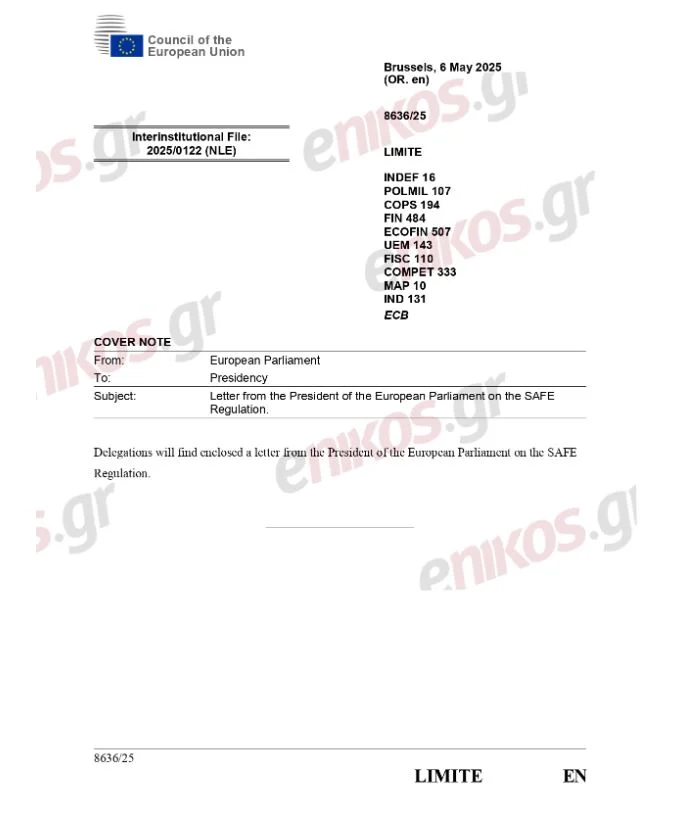
Metsola’s warning coincides with a broader political controversy: the potential inclusion of Turkey in the SAFE programme. According to a leaked letter, Metsola raised concerns that the Commission’s approach could enable third countries, especially Turkey, to participate without unanimous approval from EU member states—effectively creating a “back door” to bypass national vetoes. This development is seen as especially sensitive by Greece and Cyprus, both of which have long-standing disputes with Ankara.
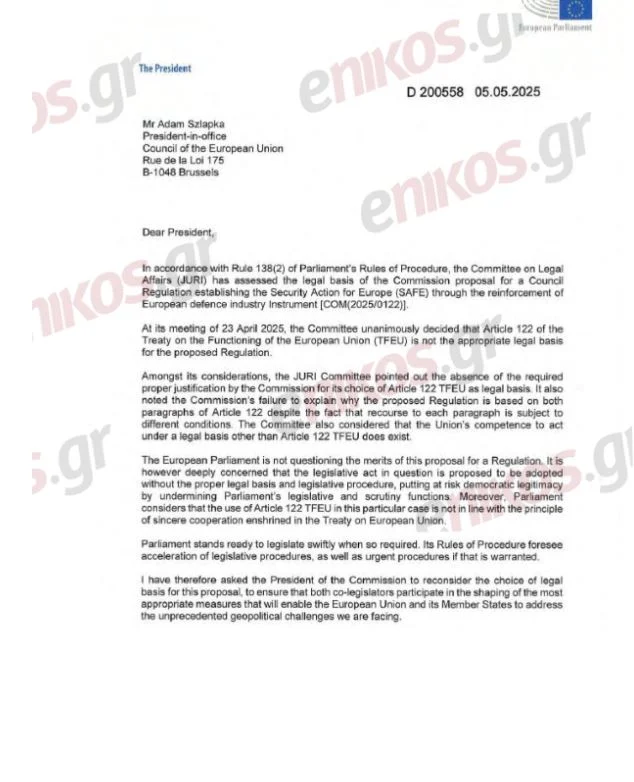
Greek and Cypriot MEPs sound the alarm
Greek MEPs Nikos Farantouris and Angelos Syrigos have backed the Parliament’s legal concerns and warned of democratic backsliding. Farantouris has even hinted at the possibility of filing a case at the Court of Justice if the Parliament is excluded from shaping the regulation. “If the Parliament’s role is not enshrined in the final act, we are ready to act,” he stated.
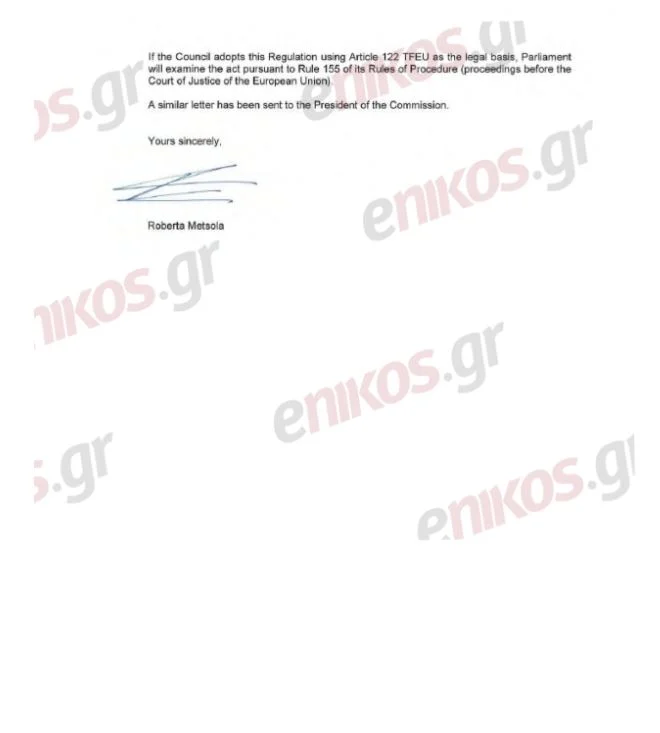
The Foreign Affairs Council meeting scheduled for 27 May 2025 is expected to be a critical moment. Greece and Cyprus are reportedly considering withholding support for the regulation unless the principle of unanimity is guaranteed, particularly with respect to third-country participation.
Despite the gravity of the dispute, the foreign ministries of Greece and Cyprus have so far remained silent, neither confirming nor denying their positions ahead of the Council meeting.
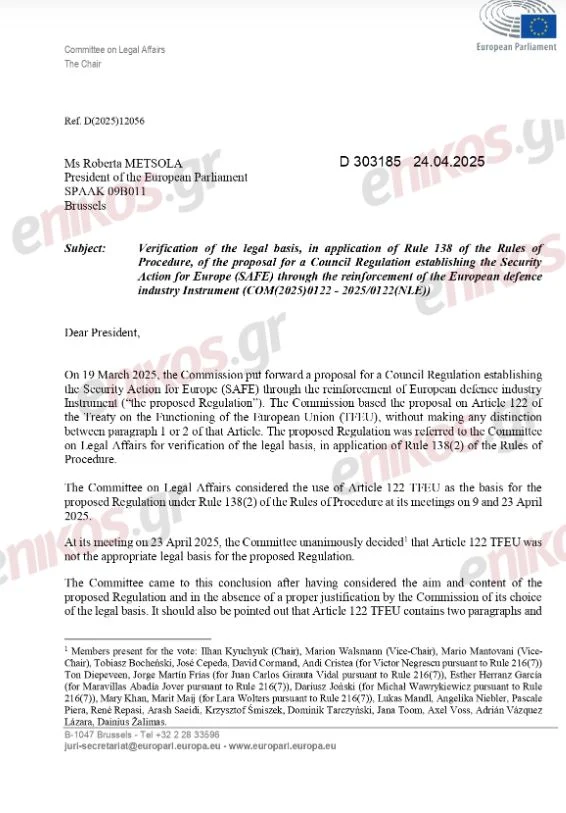
Parliament demands co-legislation role
While acknowledging the urgency of reinforcing European defence capabilities amid escalating geopolitical tensions, the Parliament has insisted on maintaining its co-legislative authority. “Parliament stands ready to legislate swiftly when needed,” Metsola stated, adding that procedural shortcuts risk weakening EU democratic foundations.
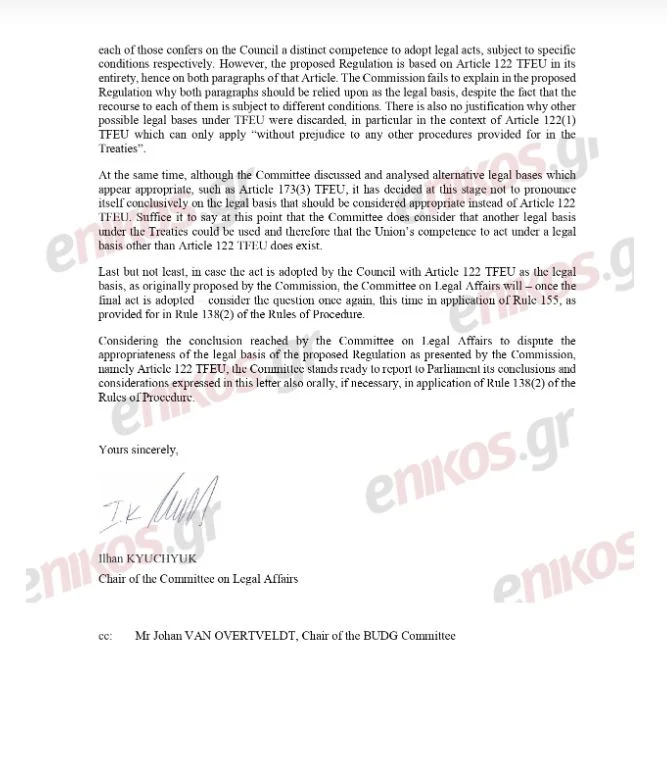
The SAFE Regulation, originally intended as a unifying instrument to bolster Europe’s defence industry, may now be delayed or legally challenged due to procedural missteps and concerns over sovereignty and transparency.
Also read: Fidan visits Russia to discuss Ukraine war with Putin and Lavrov


